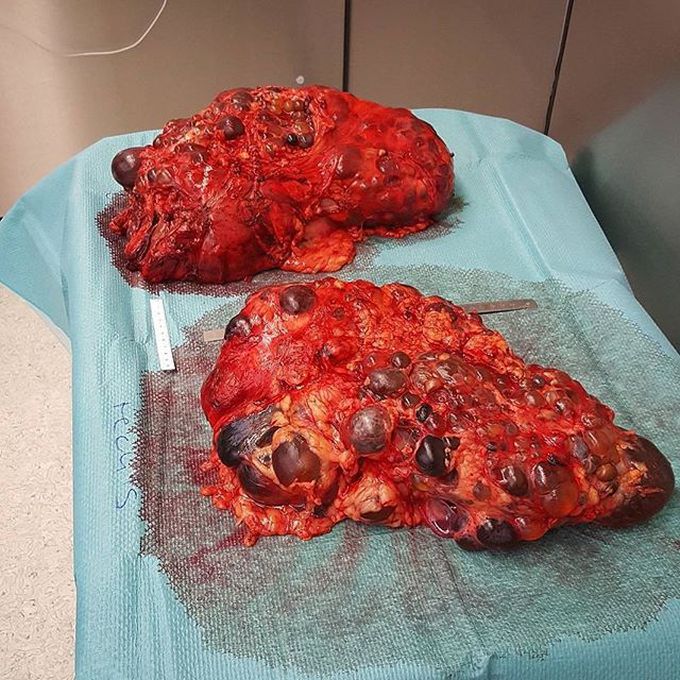


Super massive polycystic kidneys, the left kidney being 5.6kg and the right one 4.9kg!
In Polycystic kidney disease, clusters of fluid-filled sacs, called cysts, develop in the kidneys and interfere with their ability to filter waste products from the blood. The growth of cysts causes the kidneys to become enlarged and can lead to kidney failure. The disease frequently affect the kidneys, although patients may develop cysts in other organs such as liver, pancreas, ovaries and spleen. Furthermore, it may even affect the heart or brain. If it affects the patient’s brain, it can hence lead aneurysm. If affects his heart, then the valves may become floppy leading heart murmur. Frequent complications are dangerously high blood pressure (hypertension), pain in the back or sides, blood in the urine (hematuria), recurrent urinary tract infections, kidney stones, and heart valve abnormalities.A non-invasive, reliable and inexpensive diagnosis is made by ultrasound and the treatment is no other than removing the kidneys and performing a transplantation.

